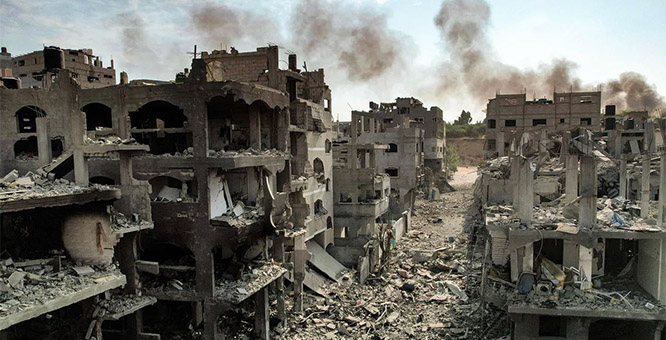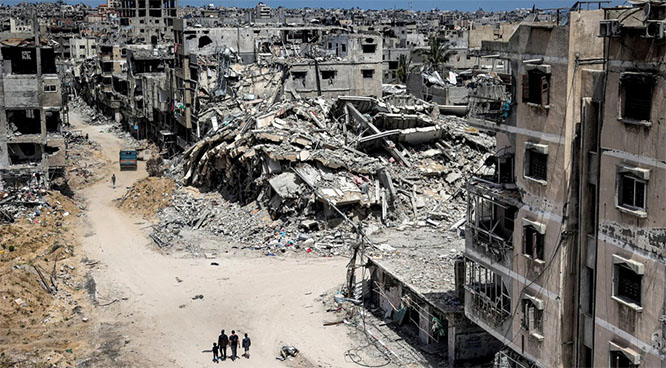Riyadh, Jun 19: Companies in Saudi Arabia are gearing up to take advantage of the latest advances in artificial intelligence (AI), according to an in-depth regional business report.
Although firms in the Kingdom remain wary of committing major investment to the emerging technology, many are already implementing data improvement initiatives to prepare for an AI-enabled future.
New research revealed on Tuesday that 89 percent of Saudi businesses indicated AI to be an important consideration of executive management, with predictive technology seen as the most relevant application by 79 percent of companies who took part in the survey.
And experts believe the Kingdom is well-positioned to “leapfrog” other countries in the race toward achieving the goals of the Saudi Vision 2030 reform plan.
According to the AI maturity report covering the Middle East and Africa, commissioned by Microsoft and conducted by Ernst & Young (EY), the Saudi business community is keeping up to speed on developments.
Releasing the report to the media, Thamer Al-Harbi, president of Microsoft Arabia, said: “Saudi Arabian businesses are taking a keen interest in AI from a strategic viewpoint. This bodes well for the future of the technology within the Kingdom as AI maturity begins with executives identifying business problems that need to be solved.
“Saudi companies are gearing up to take their AI agenda to the next level and moving forward by leveraging AI technology in alignment with the National Transformation Program 2020 toward achieving Vision 2030.
“Although they are still near the beginning of the maturity curve, they are well-positioned to leverage global experience in AI, which could ultimately enable them to leapfrog other countries in the next few years,” added Al-Harbi.
Despite AI activity having been relatively quiet in Saudi Arabia over the past 10 years, with a total investment of around $585 million, the Kingdom emerged strongly again in 2018, said the report.
Across industries, there was a significant buzz around the topic of AI, with 42 percent of companies reporting that conversations on the subject were already taking place at non-managerial levels, the highest percentage recorded by any country in the Middle East and Africa, Al-Harbi said.
AI development, though in its earliest stages, is underway. At least 26 percent of businesses reported that they were planning AI activity, while at the same time actively investing in relevant skills.
Pockets of excellence were also shown to be emerging, with 16 percent of companies saying AI was already contributing significantly to their business processes.
While Saudi executives intuitively sense the value of AI, they are conscious that getting too caught up in the hype might blind them to the dangers of investing in technology that is only just starting to demonstrate its commercial value.
As it stands, the main concern for businesses in implementing AI is the diffusion of their resources.
The report found that at least 32 percent of firms in the Kingdom were cautious of spreading their budgetary and human resources too thin, and that the primary focus for most was digitization. Although 37 percent of respondents viewed AI as an important priority, it was not at the top of their list.
Instead, they were actively building the infrastructure needed for digital transformation, starting with good-quality data.
Steve Plimsoll, MENA data and intelligence advisory leader for EY, said: “The biggest problem to date with AI is that it is not always right. AI has given us the ability to make data-driven predictions, decisions and actions faster than ever before, but it is only as effective as the data and algorithms it relies on.
“So, while it’s great to see local companies investing in adoption of AI, the focus must be on building trust that the underlying data and algorithms are reliable, the models ethical and the predictions are measurable and as accurate as they can be. Without trust, AI will never fully move from fiction into reality.”
The report also revealed that in general, Saudi businesses were upbeat about the future impact of AI on their businesses and 37 percent expected it to impact their core business to a very high degree.
Those quizzed were particularly positive about the potential of AI to assist employees in executing their daily functions more effectively.
Currently, prediction was seen as the most relevant application of AI for 79 percent of Saudi companies, with organizations using AI to predict risk and fraud or combining it with intelligent automation to assign workloads to individuals, ultimately optimizing business processes, the report said.
The study added that 68 percent of respondents indicated that automation was one of the most relevant applications of AI in their pursuit of operational efficiency.








Comments
Add new comment